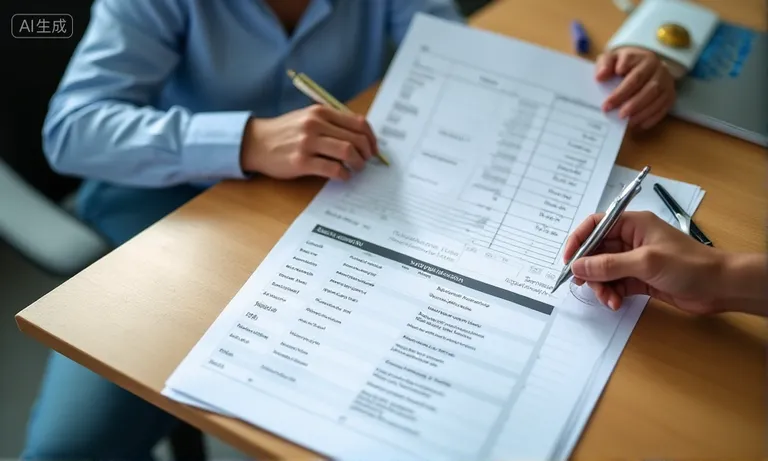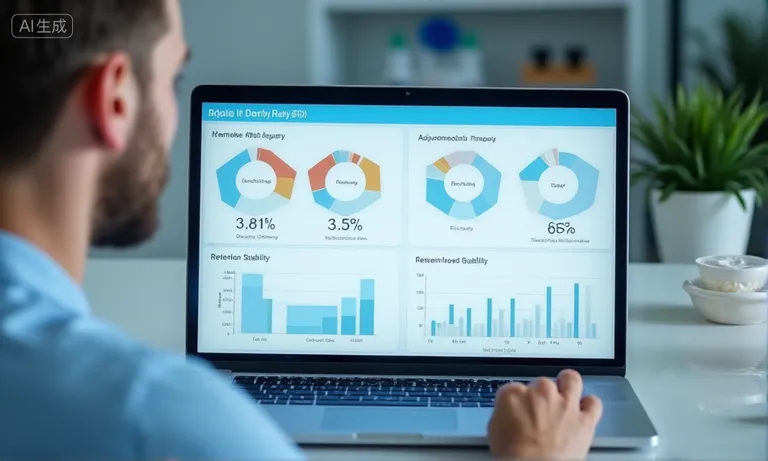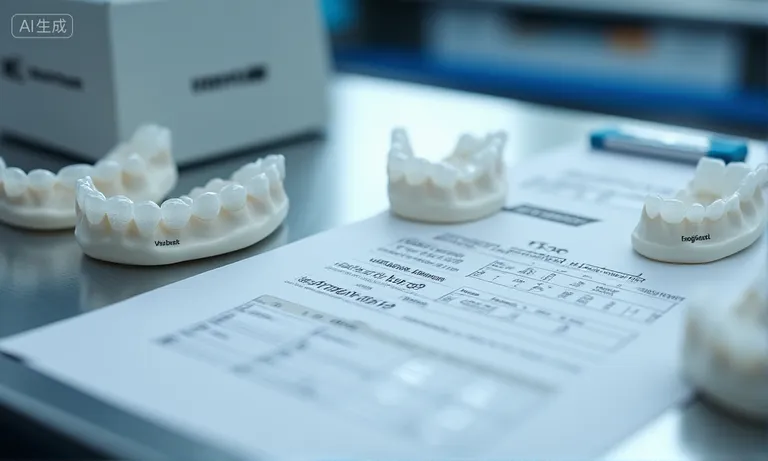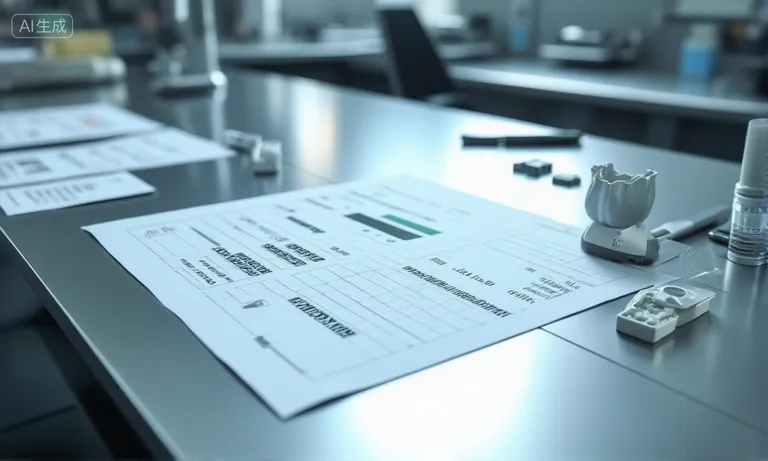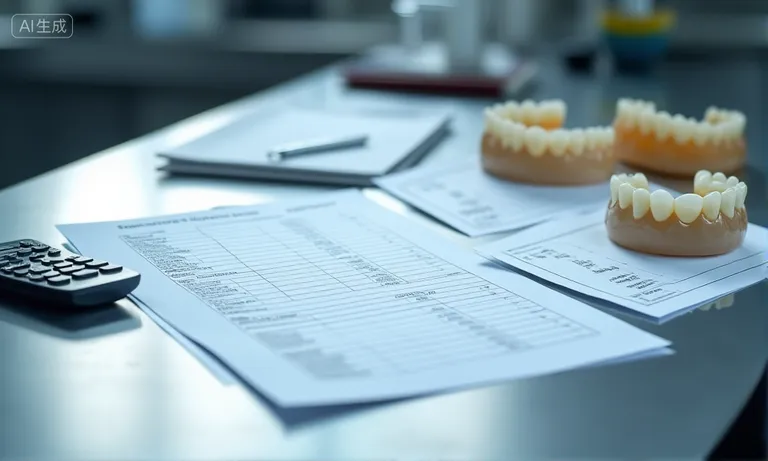Finding a reliable dental implant lab for a long-term partnership requires more than price checks—it depends on consistent quality, technical capabilities, clear communication, and robust risk management. The right choice is not just a supplier, but a partner who can deliver predictable outcomes and stability for many years.
Procurement teams often face recurring challenges when evaluating implant labs:
- Uncertainty about reliability and which certifications (ISO, FDA, CE) truly matter.
- Difficulty comparing technical capabilities such as CAD/CAM integration, material quality, and full-arch support.
- Concerns about long-term stability, including turnaround times, pricing transparency, and account management.
- Risks in overseas outsourcing, such as remake policies, logistics delays, and documentation mismatches.
- Lack of a clear validation process before committing to a partnership.
The most effective approach is to apply structured qualification checks, run trial cases for performance validation, and confirm documentation workflows upfront. Over time, partnerships built on transparent pricing, stable turnaround, and responsive communication become strategic assets. With the right overseas dental lab, clinics and DSOs gain both clinical confidence and supply chain security, ensuring fewer remakes, predictable costs, and smoother collaboration across every case.
What Defines Reliability in a Dental Implant Lab?
Reliability in a dental implant lab is measured by its ability to deliver consistent quality, comply with global standards, and maintain a proven track record in implant-specific work. For procurement leaders, these benchmarks reduce risk and form the foundation for long-term cooperation.
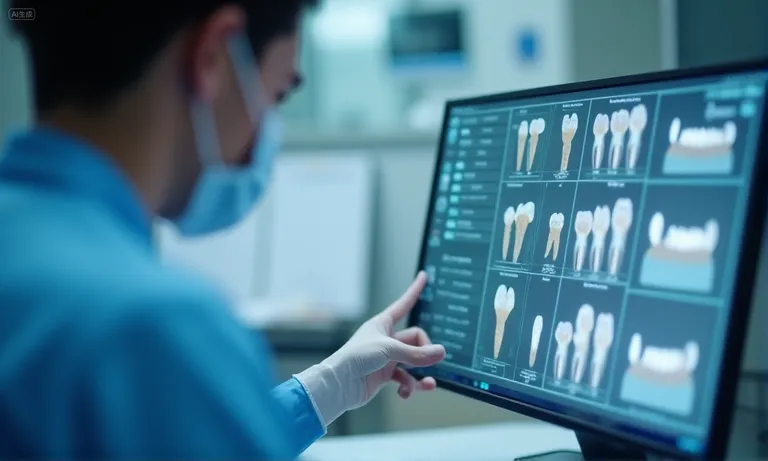
dental-lab-quality-reliability-check
Consistency in quality and low remake rates
A reliable lab consistently produces restorations that require minimal adjustments at chairside. Clinics track remake rates as a key performance indicator—labs with remake rates below 5% demonstrate robust processes. Reliability is not perfection, but predictability: when minor issues occur, a professional lab responds quickly and transparently.
Compliance with certifications and global standards (ISO, FDA, CE)
Certifications show that a lab’s quality systems meet internationally recognized requirements. ISO 13485 focuses on medical device quality management, FDA registration ensures eligibility for the U.S. market, and CE marking demonstrates compliance for the EU. These credentials reduce legal risks for clinics and confirm that the lab’s workflows meet regulatory standards.
Reputation, referrals, and years of implant-specific experience
Beyond documents, reliability is demonstrated through history. Labs with many years of implant-specific experience are more likely to handle complex cases accurately. Referrals from peer clinics or distributors provide an extra layer of assurance. A global dental lab like Raytops dental lab often shares anonymized case references or testimonials, which give new partners tangible proof of long-term performance.
When clinics evaluate reliability through quality consistency, compliance credentials, and reputation, they create a first filter that separates stable partners from risky suppliers. This early clarity reduces hidden costs later and builds confidence that the lab can be trusted with complex implant cases.
How to Assess Technical Capabilities of a Dental Implant Lab?
Technical capability defines whether a dental implant lab can handle simple crown cases as well as complex full-arch restorations. Buyers need to evaluate digital compatibility, product range, material standards, and technician expertise to avoid surprises after cooperation begins.
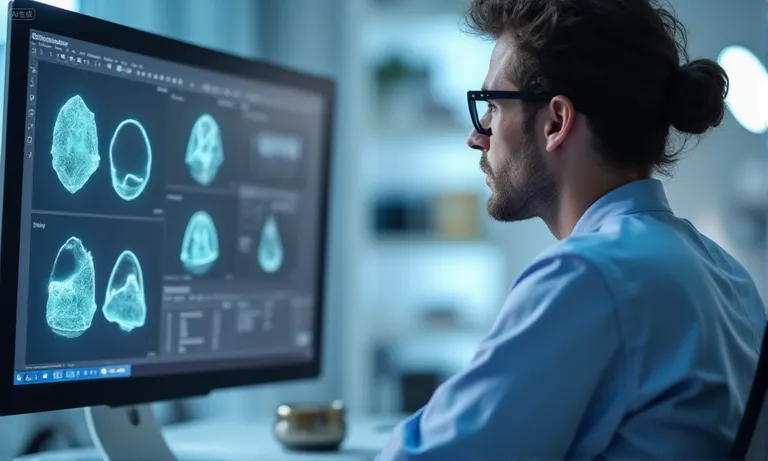
dental-lab-technical-capability-assessment
Digital workflow compatibility (CAD/CAM, STL, intraoral scans)
Smooth digital integration is critical for efficiency.
- Check whether the lab accepts STL files, DICOM images, and intraoral scans.
- Confirm support for 3Shape, Exocad, and other CAD/CAM platforms.
- Ask if they provide secure portals for large file transfers.
Labs with strong digital workflows reduce turnaround times and minimize errors caused by manual adjustments.
Range of implant restorations (crown, bridge, full arch, custom abutments)
A capable lab should support multiple indications, from single-unit crowns to complex full-arch restorations.
- Single crowns and bridges for everyday cases.
- Custom abutments and hybrid frameworks for precision fit.
- Full-arch zirconia restorations for edentulous patients.
- Screw-retained or cement-retained options across implant systems.
Assessing product range ensures the lab can grow with your clinical demand instead of limiting treatment options.
Material trust and selection (zirconia, PFM, biocompatibility)
Material quality directly impacts patient safety and restoration longevity.
| Material Type | Key Benefits | Reliability Check |
|---|---|---|
| Zirconia | High strength, esthetics | Verify batch certificates, translucency grade |
| PFM (Porcelain Fused to Metal) | Proven durability, cost-effective | Check alloy origin and biocompatibility |
| Titanium & Custom Abutments | Precision fit, implant compatibility | Confirm machining accuracy |
| PMMA / Temporary | Short-term esthetics | Ensure non-toxic and biocompatible sources |
Labs should provide traceable certificates for each material batch. A global dental lab like Raytops dental lab routinely shares documentation to prove sourcing and compliance.
Technician expertise and credentials
Behind digital tools and materials, skilled technicians make the difference. Evaluate whether technicians are trained in implant-specific workflows, understand occlusion dynamics, and hold certifications from recognized training programs. Labs that invest in technician development are more likely to deliver consistent outcomes across different implant systems.
By assessing digital compatibility, product range, materials, and technician expertise, clinics ensure that their chosen lab is not only equipped for today’s cases but also capable of handling complex and future demands.
What Ensures a Sustainable Long-Term Partnership?
Sustainability in a dental implant lab partnership depends on more than technical skill. Clinics and DSOs need predictability in pricing, communication, production stability, and dedicated support. These elements determine whether cooperation remains smooth when scaled over years rather than months.

dental-lab-long-term-partnership-meeting
Transparent pricing models and predictable cost structures
Clarity in pricing removes hidden risks and improves planning.
| Pricing Element | Why It Matters | Reliability Check |
|---|---|---|
| Unit pricing | Baseline for budgeting | Confirm all-inclusive vs. add-ons |
| Rush case surcharge | Impacts urgent treatment costs | Compare against industry average |
| Shipping fees | Can erode cost savings | Verify by destination and case volume |
| Remake policies | Prevent financial surprises | Ensure conditions are transparent |
Labs that provide a transparent cost structure make it easier for clinics to forecast expenses and calculate ROI.
Communication efficiency and case submission workflow
Reliable labs define how information flows.
- Dedicated email or portal for scan and STL uploads.
- Quick confirmation of case receipt to avoid uncertainty.
- Standard turnaround updates to manage patient scheduling.
When both sides agree on a submission workflow, daily cooperation becomes smoother and less prone to miscommunication.
Stability of production capacity and delivery turnaround
A sustainable lab partner can scale with clinic growth. Capacity stability means having enough technicians, machines, and inventory to handle both regular volumes and seasonal peaks. Delivery turnaround consistency is equally critical—predictable 7–10 day cycles for standard implant work are a sign of maturity. A global dental lab like Raytops dental lab demonstrates this by maintaining backup teams to manage peak loads without extending lead times.
Dedicated support or account management
Long-term partnerships benefit from a named account manager or support team. This role helps resolve issues quickly, ensures feedback is acted upon, and provides continuity even if personnel change within the clinic. Dedicated support also strengthens trust, as clinics know they have a direct line to the lab for urgent cases or process adjustments.
When transparent pricing, efficient communication, stable capacity, and dedicated support are in place, an implant lab partnership becomes more than transactional. It evolves into a predictable, trusted collaboration that supports growth on both sides.
How to Manage Risks When Partnering with Overseas Dental Labs?
Outsourcing implant cases to overseas dental labs can deliver cost advantages and technical depth, but it also brings risks in quality assurance, logistics, and communication. Effective risk management reduces uncertainty and ensures clinics receive predictable outcomes.

Image
ALT: overseas-dental-lab-risk-management
Prompt: A highly realistic, ultra-detailed, professional-quality photo captured in a clean, well-lit environment. Materials must be photorealistic, and rendered with DSLR-level clarity. Lighting should be soft daylight or studio white light, avoiding cold or bluish clinical tones. A logistics coordinator and dental lab manager are reviewing shipping documents and quality control charts, with implant models blurred in the background.
Quality assurance systems and remake policies
A clear quality framework minimizes disruption.
| QA Element | Why It Matters | Best Practice |
|---|---|---|
| Incoming material checks | Prevents defects at source | Verify zirconia batch certificates |
| In-process inspection | Catches errors early | Random QC per production batch |
| Final inspection | Ensures consistency | Digital measurement reports |
| Remake policy | Reduces hidden costs | Transparent remake triggers and timelines |
Labs that publish their remake policies openly show confidence in their processes and provide clinics with financial predictability.
Risk control in outsourcing, shipping, and logistics
Cross-border cooperation adds extra layers of risk.
- Build buffer time for customs clearance and potential delays.
- Confirm logistics partners with proven healthcare shipping experience.
- Use tracking systems to monitor shipments in real time.
- Establish alternative couriers for urgent cases.
When these steps are set in advance, clinics are less exposed to international transport disruptions.
Documentation and file compatibility checks
Errors often arise not from production but from misaligned documentation. Ensuring case submission forms, STL file naming conventions, and implant system details are standardized prevents avoidable delays. A global dental lab like Raytops dental lab routinely checks files upon receipt and immediately flags mismatches, which saves days compared with discovering problems late in production.
Handling feedback and troubleshooting effectively
When issues do arise, the real test is how quickly they are resolved. Labs that have a structured feedback loop—acknowledgment within 24–48 hours, corrective action tracking, and post-resolution confirmation—help clinics recover faster. Transparency during troubleshooting builds confidence that problems are treated as exceptions, not patterns.
By implementing robust QA, anticipating logistics challenges, standardizing documentation, and maintaining a structured feedback system, clinics can minimize risks while still benefiting from the scale and expertise of overseas dental labs.
Key Steps Before Finalizing a Partnership
Before committing to a dental implant lab, procurement teams need a structured checklist that balances technical validation with practical workflow checks. This process ensures the chosen partner can meet both clinical and business expectations.
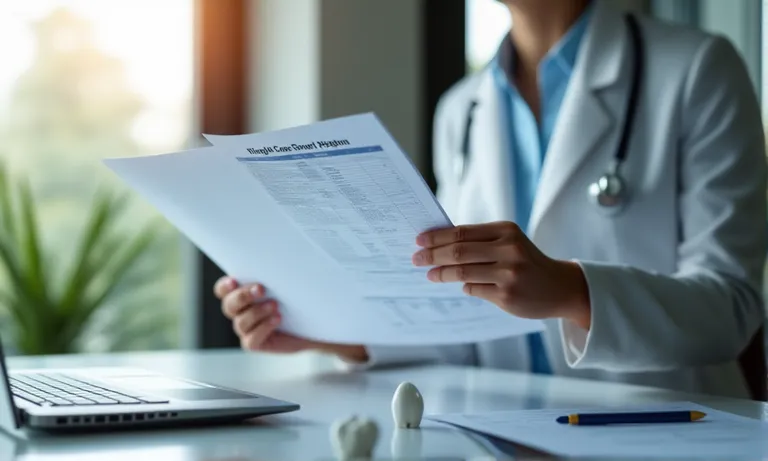
dental-lab-partnership-final-checklist
Supplier comparison checklist (local vs overseas labs)
A side-by-side comparison helps decision-makers weigh trade-offs.
| Factor | Local Lab | Overseas Lab |
|---|---|---|
| Turnaround time | Faster but costlier | Slightly longer, more scalable |
| Cost per unit | Higher | Lower |
| Regulatory compliance | Easier to verify | Must confirm ISO/FDA/CE |
| Range of restorations | Varies | Often broader with OEM focus |
| Communication | Easier in-person | Digital tools bridge distance |
This framework highlights that while overseas labs bring cost and range advantages, due diligence in compliance and communication is essential.
Trial cases and performance validation
Running trial implant cases before formal commitment is the most reliable way to confirm lab performance. Tracking remake rates, chairside adjustments, and delivery predictability reveals whether the lab can scale without compromising quality. A global dental lab like Raytops dental lab often uses trial runs as structured validation, with both sides agreeing on measurable benchmarks.
Clear documentation and submission process
Smooth cooperation depends on standardized documentation.
- Confirm case submission forms and file formats (STL, DICOM).
- Align implant system naming conventions.
- Define how approvals and revisions are recorded.
When documents are clear, both clinics and labs save time and reduce miscommunication.
Aligning expectations and partnership terms
Finalizing a partnership means aligning more than technical details. Both sides should agree on delivery timelines, remake policies, and escalation protocols for urgent cases. Transparent terms create stability and reduce disputes later.
By combining structured comparisons, pilot validations, clear documentation, and aligned expectations, procurement teams can finalize partnerships with confidence. This last step transforms evaluation into action, ensuring the selected lab delivers both reliability and value.
Conclusion
Securing a reliable dental implant lab for a long-term partnership depends on clear qualification, technical validation, and aligned expectations. When procurement teams compare suppliers, run structured trial cases, and confirm documentation and turnaround standards, they reduce the risk of remakes and hidden costs. Over time, the most sustainable partnerships are built on transparent pricing, stable capacity, and efficient communication. Working with an overseas dental lab that combines global certifications with proven experience allows clinics and DSOs to achieve both clinical confidence and business efficiency, turning supplier cooperation into a lasting strategic advantage.
